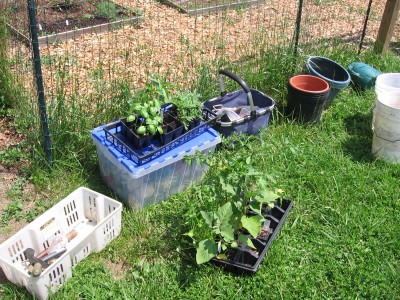 How can schools access resources as you improve your environmentally sustainable practices? Our overarching goal, of course, is to take care of the earth so that the earth can take care of us. The earth provides air to breathe, water to drink, food to eat, and space to live for each of us, but we are all aware that these resources are being severely challenged. We need to address these challenges in multiple ways.
How can schools access resources as you improve your environmentally sustainable practices? Our overarching goal, of course, is to take care of the earth so that the earth can take care of us. The earth provides air to breathe, water to drink, food to eat, and space to live for each of us, but we are all aware that these resources are being severely challenged. We need to address these challenges in multiple ways.
When you are learning and teaching about water issues, consider Philadelphia Water Department (PWD) resources for education and for stormwater (rainwater) management project support. Our collective dependence on water is a watershed-wide issue, crossing city and even state boundaries and requiring a regional approach as we experience current needs, solve problems, and plan for the future.
To understand and teach about water, first, understand where you are in your watershed. The Philadelphia Water Department has an interactive map that places you within the watersheds of Philadelphia. Most of us are in the Delaware River Watershed because our local rivers are tributaries to the Delaware River.
Second, understand where your drinking water comes from, where your sewage is treated, and where the stormwater on your school property travels as it makes its way to the local river. The Philadelphia Water Department educational programs for teachers and for children provide opportunities throughout the year. There are field trips to Fairmount Water Works or water treatment plants, teacher workshops or stormwater best management tours, and online resources, including an urban watershed curriculum. Their website is a hub for PWD educational opportunities.
Third, increase management of your own stormwater. By doing so, you can recharge ground water, reduce flooding in the watershed, beautify your school campus and improve the local natural environment. The Green City Clean Waters Program in Philadelphia is a plan for managing the stormwater in Philadelphia. This model can be replicated throughout the region, and the tools and green infrastructures highlighted on this website can inform your conversation with professionals as you take charge of the water resource raining down on your school property.
Philadelphia Water Department can be a resource for your school via its website, the educational programs, and a network of partnerships as we all protect the water upon which we depend. The Green Schools Program is particularly helpful.
A few of the many other leaders addressing water issues include:
- The Franklin Institute manages the Philadelphia Climate & Urban Systems Partnership (Philly CUSP); a community of local stakeholders who share a passion for engaging residents in climate change issues, and interact frequently to learn how to do so better. For more information, email CUSP@fi.edu.
- The Academy of Natural Sciences of Drexel University reaches the public through The Center for Environmental Policy, using evening Town Square programs and Urban Sustainability Forums.
- The Overbrook Environmental Education Center successfully turned a brownfield into a showcase of best management practices for stormwater, and is a hub of sustainable environmental and technological education and activity.
- See more links to area resources on the Teacher Resources page of this website.
